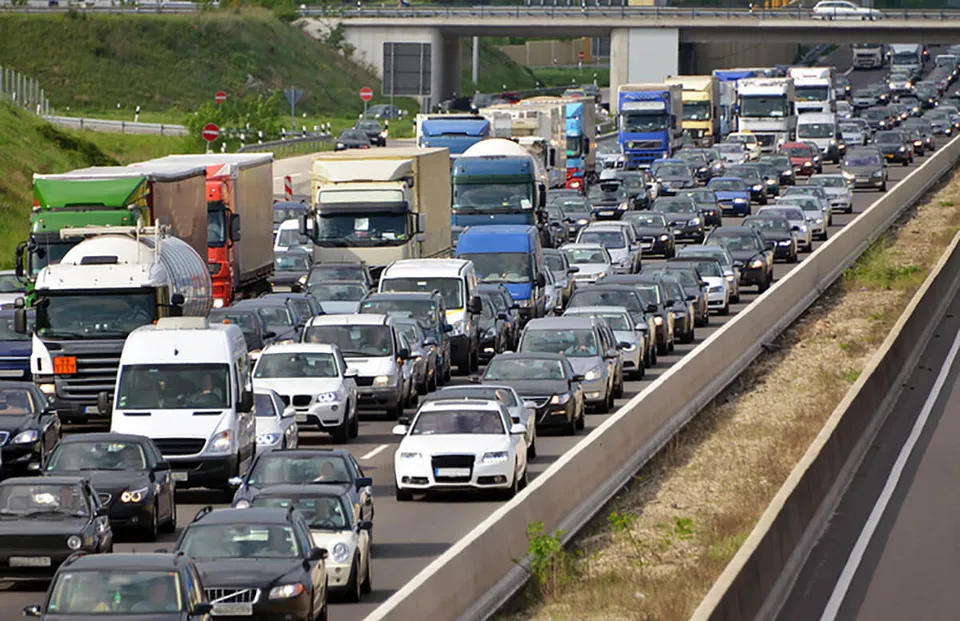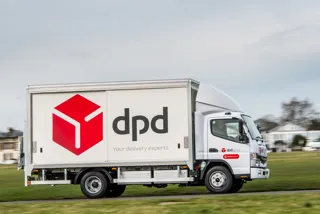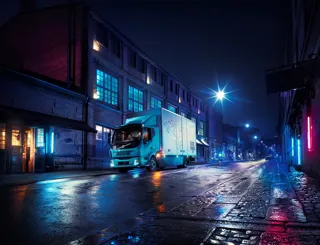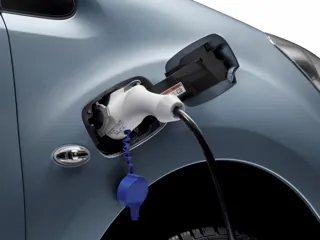Van and truck operators could lose out to more forward-thinking competitors if they don’t start investigating the potential for ultra-low emission vehicles (ULEVs) on their fleets, Government officials have warned.
The call to action comes as an increasing number of diesel alternatives are being developed, offering reduced emissions in response to environmental challenges and the roll out of clean air zones (CAZs) in the UK, which could see some fleet vehicles banned from town and city centres if they don’t update their vehicles to cut carbon pollution.
The Government, through Innovate UK, is trying to kick-start the journey to a green future among van and truck fleets with a £20 million initiative to develop new technology and vehicles through its Low Emission Freight and Logistics Trial, launched in January 2017.
Venn Chesterton, ultra-low emission vehicle innovation lead at Innovate UK, cautioned that it was important for fleets to carry out assessments and trials now, to avoid falling behind in the clean air race.
He said: “There could be a point where clean air zones are introduced, or customers demand goods are delivered by electric vehicle and that could happen very quickly.
“In these circumstances, if your competitors have experience with ultra-low emission vehicles, such as electric vehicles, or operate them, then that puts them ahead.
“Some forward-thinking companies are already picking this up and running with it. If you don’t do this then, in a few years’ time, a company could find itself at a competitive disadvantage.”
Under the trial, 20 companies are developing initiatives for innovative ways to deploy low- and zero-emission vehicle technology.
Several trials are already taking place and all of them will be live by this September, although Chesterton said that the real focus will be on the data when all trials are completed in a year’s time.
He said: “Everything is going along as planned, with all projects on track to have started by the end of the summer.
“For Innovate UK, starting is not the sole focus, we are most interested in the results after vehicles have been operated for a full year.
“Analysis will look at how they are used, how many miles they cover and establish a baseline against equivalent diesel vehicles. With that you get a change in emissions, where we are targeting a reduction.”
Freight accounts for about 30% of the UK’s CO2 transport emissions, so there is pressure to develop supply and demand around low emission options for the industry.
To establish a level playing field for assessment, vehicles will be put through standardised tests at Millbrook Proving Ground that closely reflect freight and logistics operating cycles, covering usage ranging from urban and rural areas to trunk roads.
The real-world view of operators is also being assessed, Chesterton said.
Operators and managers will be interviewed at depots to understand issues such as driver attitudes, downtime, operational restrictions and fuel savings.
Chesterton added: “We are trying to understand their views in the real world, so some interviews might be carried out at refuelling stations.
“Success will be getting results from the technology. The Government has a technology-neutral approach, but it can signal to market what has done well.
“We can provide the market with a definition of what a low-emission truck looks like, so that we can provide clarity to the market.
“We will also be able to provide the scale of the benefit. For example, a gas truck might be 10% more efficient, while an electric truck could be 50% more efficient and this unified approach would help inform future incentives.”
Chesterton already has extensive experience in the commercial vehicle sector, having previously helped oversee the LoCity programme with Transport for London (TfL) to prepare the freight industry to adapt to a low emission future.
He remains on its steering committee.
The Low Emission Freight and Logistics Trial programme complements initiatives such as LoCity, along with a broad range of other initiatives designed to promote efficiency in the logistics sector.
These include the Freight Operator Recognition Scheme (FORS), a voluntary accreditation scheme with 4,800 members that promotes best practice for commercial vehicle operators, and the ECO Stars fleet recognition scheme, a free initiative that aims to help fleet operators improve efficiency, reduce fuel consumption and emissions and make cost savings.
Chesterton said: “The Low Emission Freight and Logistics Trial is taking a dual approach, with real-world trials and analysis, so that in a year’s time we will have a really good understanding of the vehicles and their real-world performance.
“Some of these technologies are at a late stage of development.”
In total, around 300 vehicles will be involved in the trial.
Among the schemes that have been officially launched is the ‘dedicated to gas’ trial led by Air Liquide, under which large fleet operators including Kuehne + Nagel, Wincanton, Asda, Brit European, Howard Tenens and Great Bear will trial the effectiveness of gas-powered heavy goods vehicles new to the UK market, as well as new cryogenic transport refrigeration units (TRUs).
Another trial involves the Kers-Urban consortium’s new hybrid Kinetic Energy Recovery System (Kers).
This trial involves 20 HGVs operated by Howdens Joinery Group and Sainsbury’s Supermarkets, including both rigid and articulated HGVs.
The hybrid Kers technology recovers energy during braking and stores it, ready to use during acceleration to cut fuel use and emissions, particularly in city environments.
Howdens Joinery Group covers more than 15 million miles a year and it will be assessing the impact of the system on fuel costs within its trailer fleet.
Gnewt Cargo, the country’s biggest all-electric delivery fleet, with a peak fleet of 100 vehicles, is currently assessing 19 larger electric vehicles as part of the trial, covering the Nissan e-NV200 converted by Voltia to double its cargo area and the e-Ducato from BD Auto.
Nissan is currently launching an e-NV200 with a larger battery and range and, once this is available, the test fleet will take on five more vehicles.
Sam Clarke, director of Gnewt Cargo, said: “We added the first vehicles in December last year.
“One of our expectations for this trial is to be able to reduce the fleet without any impact on productivity. We may be low emissions, but we still contribute to reducing congestion like everyone else, so there is a focus on being more efficient.
“I think the challenge is battery technology, as we have been able to pick the lowest hanging fruit with small vehicles and light freight, but I think there is still a long way to go for bigger electric trucks.”
Gnewt’s larger fleet vehicles are already having an impact, including a pilot scheme with the Duke of Westminster’s property business, Grosvenor Group, in Mayfair, under which numerous package deliveries by diesel vehicles are diverted to the electric courier’s depot in Bow.
Instead of 21 diesel vans a day arriving at the Mayfair site, now there is a single delivery by an electric van.
Key projects
ULEMCo (Liverpool) – hydrogen
Trial of a range of vehicles with hydrogen dual-fuel technology (H2ICED).
Tevva Motors (Chelmsford) – electric
A fleet-wide pilot to prove new battery range extending technology and develop a universal battery cassette.
Air Liquide Group (Kingston-upon-Thames) – gas
Trial of gas HGVs ranging from 26 tonnes to 44 tonnes, including biogas.
UPS (Feltham) – electric
Implement smart charging system that, together with an energy storage system, will allow UPS to exceed the current maximum number of vehicles to be charged in a depot.
Gnewt Cargo (Southwark) – electric
Leasing electric vehicles to perform last mile logistics.
G-volution (Newport) – gas
Trial of dual fuel (diesel/methane) road vehicles, looking at engine combustion control, computer-based engine modelling and methane catalysts.
Magnomatics (Sheffield) – hybrid
Trial of 18-tonne trucks with plug-in hybrid electric vehicle powertrains.
Kuehne + Nagel (Wellingborough) gas, dual-fuel and electric
Trials of dedicated gas and direct injection dual-fuel methane/diesel trucks along with electric trucks.
Zapinamo (Soho) – electric
A trial of movable, connected, power-boosting electric vehicle charging infrastructure.
Lawrence David (Peterborough) – lightweight vehicles
Project to design and build lightweight aerodynamic double-deck trailers.
CNG Fuels (Solihull) – gas
Trial of dedicated gas HGVs to demonstrate their suitability for large scale roll-out.
Howdens Joinery Group (Northampton) – electric
Evaluation of a kinetic energy recovery system (Kers) for urban delivery vehicles, including both articulated and rigid vehicles.




















Login to comment
Comments
No comments have been made yet.